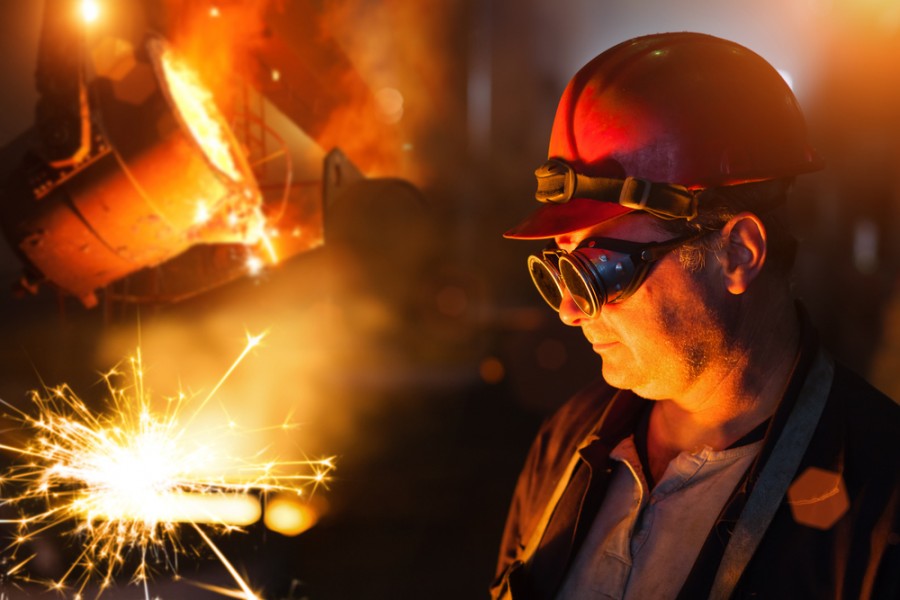US environmentalist to restart three met-coal mines

Restarting idled coal mines might seem like an odd way to fight climate change, but that’s the plan for a U.S. conservationist and his business partners, who recently acquired three Tumbler Ridge-Chetwynd area coal mines.
Walter Energy closed three B.C. metallurgical coal mines between 2014 and 2015, putting hundreds of people out of work. The bankrupt company is now selling its assets.
In mid-August, the BC Supreme Court approved the bankruptcy sale of Walter Energy’s three B.C. mines to a new company headed by U.S. environmentalist Tom Clarke.
Clarke has been behind a number of recent coal mine acquisitions in the U.S., where the mines are being restarted and production bundled with carbon offsets and reforestation.
The new owners, Conuma Coal Resources Ltd., were in Tumbler Ridge last week gearing up to restart the Brule, one of the three Peace River region mines.
Ken McCoy, one of Conuma’s co-owners and a third-generation West Virginia coal miner, said he expected the Brule mine to be back in operation sometime this week.
“We’ll be recalling close to 200 employees,” McCoy told Business in Vancouver.
“Capitalism and environmentalism are not mutually exclusive positions to take. [Tom Clarke] is a capitalist, but he also is supportive of the environment.”
He added the company hopes to restart the Wolverine mine in 2017.
The Willow Creek mine will need more study, he said, because though the mine’s coal is “excellent” in quality, there are “geological issues” that the company doesn’t fully understand.
“In a good market, there’s a demand for that really good-quality coal, but we’ve got to be able to mine it at a reasonable cost,” he said.
The sale is well-timed. Clarke and his partners have been acquiring mines from bankrupt companies at fire sale prices, and now the price for metallurgical coal is on fire.
McCoy would not disclose how much the company paid to acquire the three Walter Energy mines, but confirmed it “got them at a good price.”
The Brule mine is set to restart at a time when metallurgical coal prices have roughly doubled since the beginning of the year.
The coal will be shipped through Ridley Terminals in Prince Rupert. Conuma is a Canadian company, but its owners also own West Virginia’s ERP Compliant Fuels, which has been snapping up coal mines from bankrupt companies in the U.S.
They also tried to buy the Wabash iron ore mine in Labrador and a steel mill in Hamilton, Ontario, but that deal recently fell through,
Clarke is president and CEO of the ERP Environmental Fund and Kissito Healthcare Inc., a company that runs seniors citizens’ homes in Virginia.
Last year, Clarke and his partners raised eyebrows when they began buying distressed thermal and steelmaking coal mines in the U.S. from coal companies facing bankruptcy, including Walter Energy. They now own three steelmaking coal mines in B.C., four in the U.S., one thermal coal mine and one coking facility in Alabama, and employ about 2,000 workers.
Clarke has no background in coal mining, but McCoy does. McCoy doesn’t think there’s anything unusual about a conservationist owning coal mines.
“Capitalism and environmentalism are not mutually exclusive positions to take,” he said. “He’s a capitalist, but he also is supportive of the environment.”
In the U.S., ERP is using some of its coal mine profits to invest in reforestation, for which it earns compliance carbon credits – hence the name, ERP Compliant Fuels.
Compliance offsets are a trading mechanism that allows a company to offset the greenhouse gases (GHG) it produces by investing in reforestation, renewable energy, carbon capture and other things that can measurably reduce GHGs.
Neither B.C. nor West Virginia has cap and trade, so reforestation and investment in conservation as part of its mining operations are not required. Clarke and his partners said they just think it’s the right thing to do.
“We promote the reforestation of the lands as a means to offset the increase in carbon,” McCoy said.
He points out India is doing the same thing – ramping up coal production, but offsetting it with reforestation. In addition to investing in reforestation in the U.S., ERP also owns 100,000 acres of forest conservation land, including the Boden Creek Ecological Preserve in Belize. According to ERP, the preserve is worth 1.3 million carbon credits.
James Tansey, CEO of Offsetters Climate Solutions Inc. (TSX-V:COO), said there are challenges to getting compliance offsets through reforestation because the benefits occur over such a protracted period.
“It works in voluntary markets but in the regulated markets it’s definitely harder to do,” Tansey said.
He said investing in conservation preserves is a more likely way for a company to achieve large compliance offsets. While some of that investment could occur in B.C. – either through tree planting or investing in preserves – it doesn’t have to.
Unlike thermal coal, which is burned to produce power, metallurgical coal is used to make steel and has a slightly lower carbon profile. B.C. produces little thermal coal, but metallurgical coal is one of the province’s most important exports.
McCoy said the current spike in met coal prices is an anomaly, but even if they drop again, he thinks the sector has good prospects.
“We do think that this exorbitant spike that we’ve seen in the last two weeks is not realistic,” McCoy said. “We think it’s going to settle significantly lower than what the current pricing is, but also significantly higher than what it has been in over the last six months. It’s in an area that we think can be profitable.”
{{ commodity.name }}
{{ post.title }}
{{ post.date }}




Comments